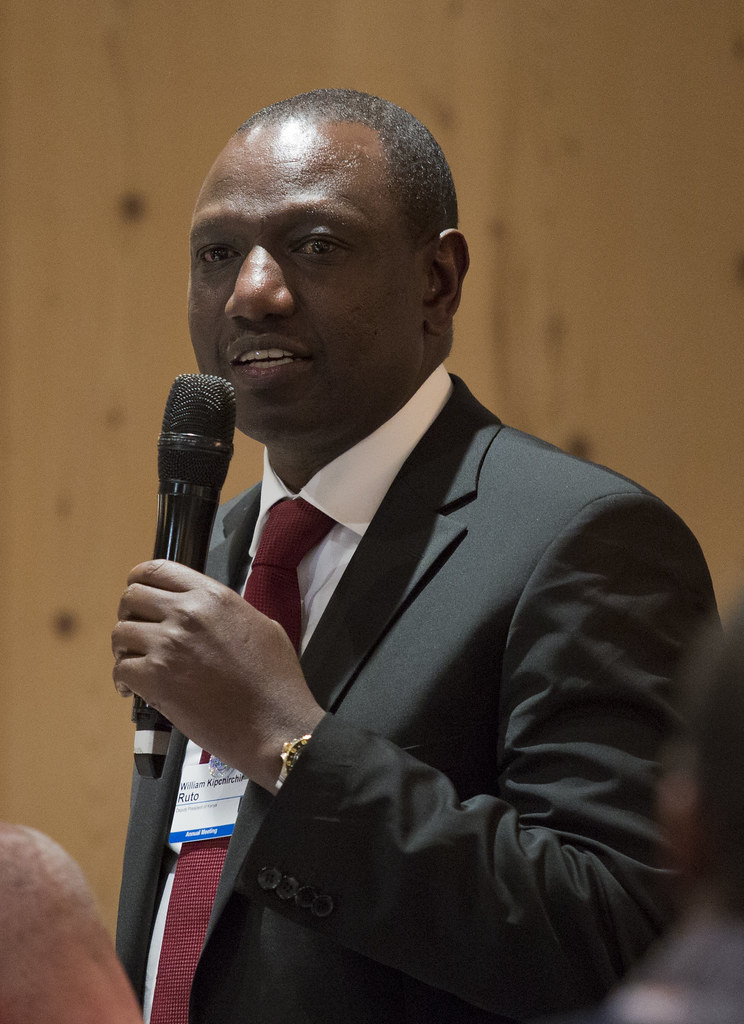President Ruto Declares Transparent Tendering for Logging Licenses
In a Move to Boost Local Industry, Ruto Announces Preference for Locally Manufactured Timber and Commits to Strengthening Forest Conservation Efforts.

President William Ruto has declared a significant shift in the allocation of logging licenses, announcing that henceforth, this process will be conducted through open and public tendering rather than the previous opaque methods. This move aims to ensure that Kenyans receive fair value for their forest resources while promoting transparency that enhances local industry capacity and job creation.
Commitment to Transparency
At a ceremony marking the passing out parade for Kenya Forest Service (KFS) inspector cadets and forester trainees at the National Youth Service headquarters in Gilgil, Nakuru County on Monday, President Ruto emphasized, “To make sure that we exploit our forest resources in a transparent and effective manner, the old method of allocating forest resources in a manner that is not transparent has to stop.” He reiterated the commitment to tender all public resources in the forests openly moving forward.
Reforms Yield Results
The President lauded the KFS for its recent successes, noting that reforms implemented over the past two years have led to a remarkable 90% reduction in illegal logging. He highlighted that KFS now operates primarily on internally generated revenue, a model that he encouraged other government institutions to adopt. This year, the government only supported KFS with KSh280 million, while the service raised KSh4.7 billion independently.
Record Graduation of Forest Officers
During the ceremony, a record 465 forest officers graduated, marking the highest number since Kenya’s independence, alongside 102 newly hired forest cadets. These graduates join a cohort of 2,600 forest rangers previously recruited, all contributing to Kenya’s environmental conservation and climate action goals. President Ruto stated, “These achievements speak volumes and consolidate our place as the environmental headquarters of the world.”
Focus on Local Manufacturing
In addition to these announcements, President Ruto committed to prioritizing locally manufactured timber products over imported alternatives. “We have already taken steps as Government to make sure that the use of locally available forest resources takes precedence over imported timber products,” he noted, aiming to bolster local economies and promote sustainable practices.
Legislative Reforms for Sustainability
The government plans to amend the Forest Conservation and Management Act (2016) to better support stakeholders in conservation and climate initiatives. This legislation will encourage innovation and collaboration, turning forest conservation into a vehicle for sustainable transformation.
Upholding Integrity and Professionalism
The President also urged the newly graduated officers to uphold high standards of professionalism and integrity, cautioning them against engaging in practices that have previously tarnished the reputation of KFS. “Do not allow your careers to be tainted by integrity issues, laxity, or incompetence,” he advised.
Collaborating for Environmental Goals
KFS officers are set to oversee youth involved in the ClimateWorX Mtaani project, aimed at greening and cleaning Kenyan cities and towns. The initiative represents a concerted effort to engage young people in environmental stewardship, fostering a culture of sustainability throughout the nation.
This new approach to logging licenses and the emphasis on local resources reflect President Ruto’s broader commitment to sustainable development and economic empowerment in Kenya. By fostering transparency and prioritizing local production, the government aims to enhance the livelihoods of Kenyans while ensuring the protection and sustainability of the nation’s forest resources.
- READ MORE ON:
- William Ruto
- Kenya Forest Service










